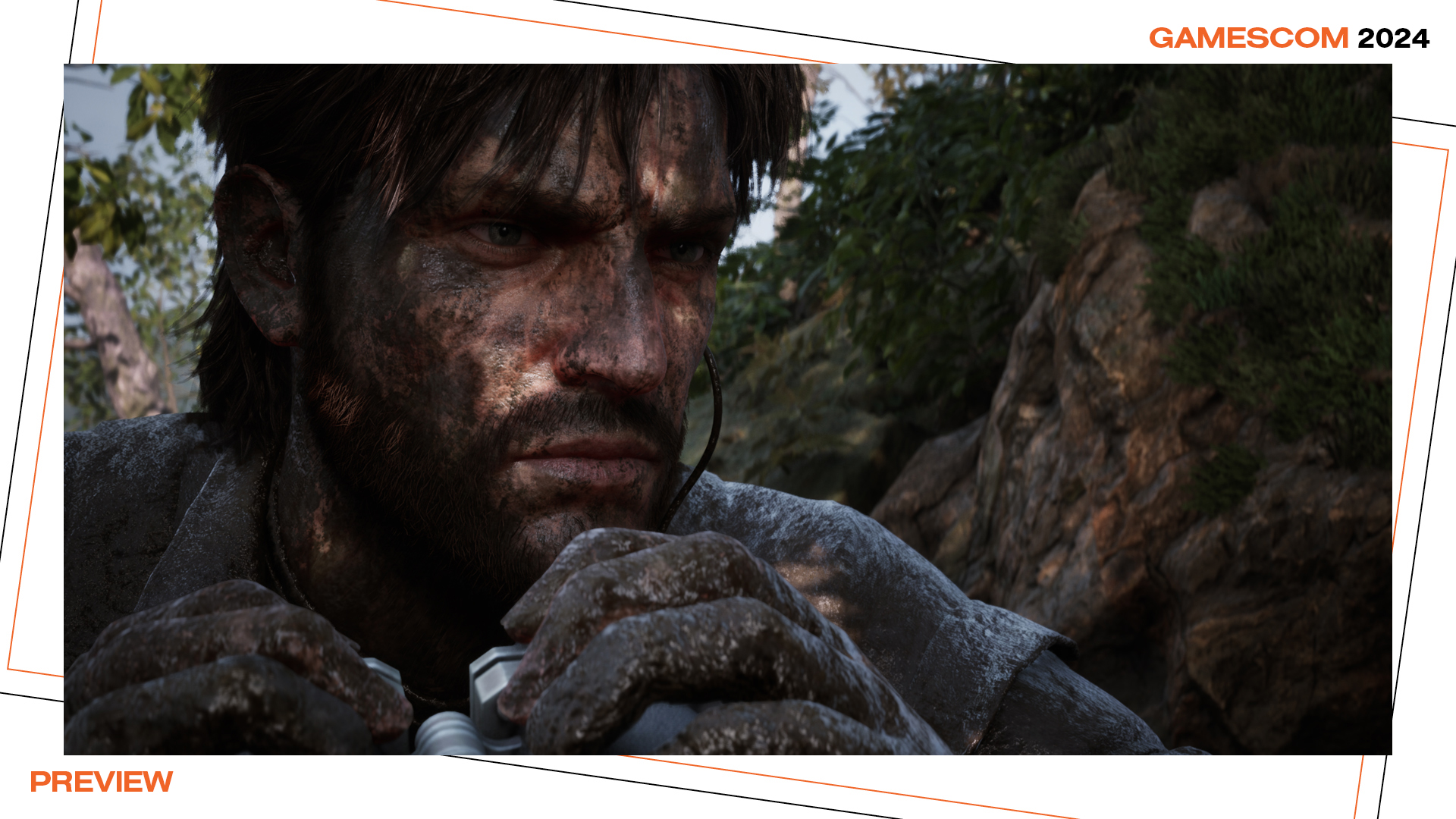
How do you explain Metal Gear Solid to someone who's never experienced it? At first glance, it's a near-impenetrable explosion of gravelly-voiced protagonists, cardboard boxes, and giant exclamation marks – with robots lovingly sprinkled atop. Yet for those who explored Shadow Moses, Big Shell, and Tselinoyarsk the first time around, Kojima's seminal stealth saga feels less like a video game, and more a sacred text.
In recent years, however, the legendary soldier's mythos has begun to wane. Now almost a decade since Metal Gear Solid 5: The Phantom Pain first hit shelves, a whole generation of gamers have grown up in a Snake-less world. With Gen Z not knowing their Volgin from their Ocelot, we find ourselves in a time of unparalleled Kojima crisis. Sensibly then, Konami is hoping to right this wrong, remaking Snake's cold war classic, Metal Gear Solid 3: Snake Eater for shiny modern hardware.
With its release date still nowhere in sight, I received intel about a top-secret demo for this new 'Delta' Metal Gear Solid 3 remake project. As a grizzled F.O.X veteran, Like Chase and Status before me, I eagerly returned 2 Jungle, re-donning my bandanna, tuning my codec, and grabbing my Mk2 tranquilizer, one last time. As I popped on my headset and picked up my mission apparatus, there was one question ricocheting around my head – has Konami lovingly restored this timeless classic, or merely fumbled the cardboard box? It was time to find out.
Kept you waiting, huh?
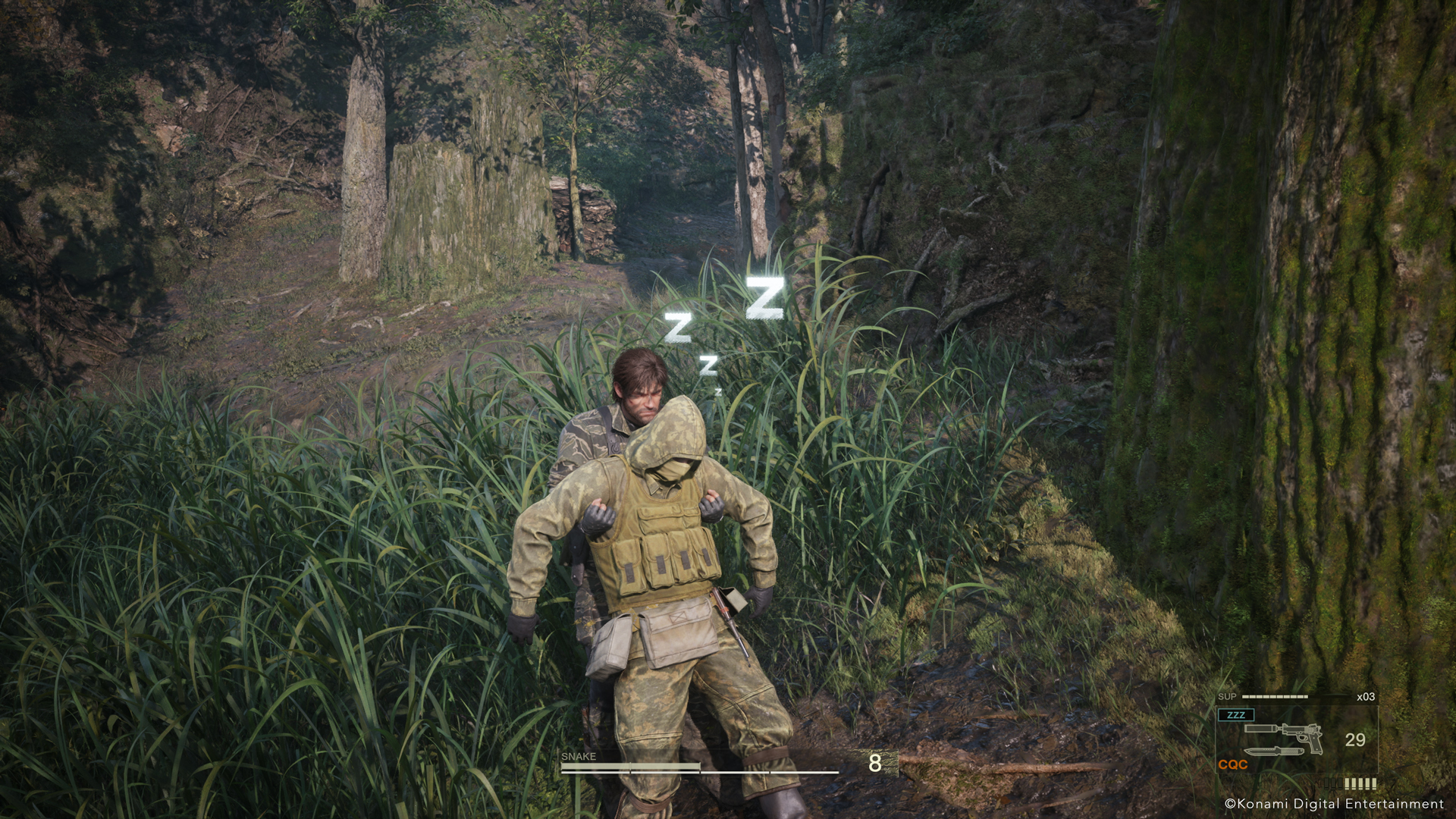
There's a giddy thrill to returning to MGS3: Snake Eater in 2024. As the camera pans round to a gas mask-wearing Big Boss, Major Tom and the rest of his pilots chatter and grimace with a new lease of life. As the iconic score kicks in, my excitement rises, and the goosebumps bristle…. before I'm parked in front of a lengthy cutscene, like an unruly toddler with an ipad. Ahh, It's like Kojima never left.
Let's get the obvious out of the way first, Metal Gear Solid Delta looks absolutely stunning. While I was one of the naysayers initially unconvinced by Big Boss' new character model – and the lack of sepia filter – once I'm actually exploring the humid overgrowth, those doubts completely disappeared. As the dense jungle glistens in the heat and insects buzz above Snakes, it's the little details which impress. From the red blinking lights on soldier's radios to the tranquilizer darts sticking out of enemies, this iconic setting bursts with newfound life. While much has been made of Snake's lasting visible damage in Delta, this didn't seem particularly visible, in the Virtuous Mission prologue at least.
As my cover is blown and I get into a hairy firefight, bullet scrapes and rifle butt bruises don't seem to register. Crawling through the thick muddy bogs, however, leaves its murky mark, and as I emerge from the thick sludge and roll out of reach of an alligator's jaw, the mud clings to Snake's sticky uniform for several screens. It's this decision to learn into the cinematic that Konami feels gives Snake Eater new life: "When people play [Snake Eater] in this day and age, we don't want it to feel like a 20 year old game – old and clunky," explains series producer, Noriaki Okamura "we want to make sure it feels exactly how they remember it – like the vision of Snake Eater in their minds."
Cutscenes feel newly dynamic, allowing you to zoom in and out of each glistening 4K scene as you please, positioning the camera at bizarre angles to soak in miniscule details, like a zoom-happy YouTuber. It's something I particularly enjoy when I meet Snake Eater's crew of iconic oddball villains, the Cobra Unit. These absurd antagonists now teem with eccentricity. The End's eyes bulge like something ripped from the pages of manga horror writer junji ito, The Pain's hornets look newly sickening. Even Volgin's scars look more fearsome than ever, his lightning zapping out of him with a realistic sizzle. Much like its forebears, MGS3: Snake Eater has always delighted in snapping between realism and utter nonsense, and so far it seems that original oddball spirit remains lovingly intact in Delta.
Shedding its skin
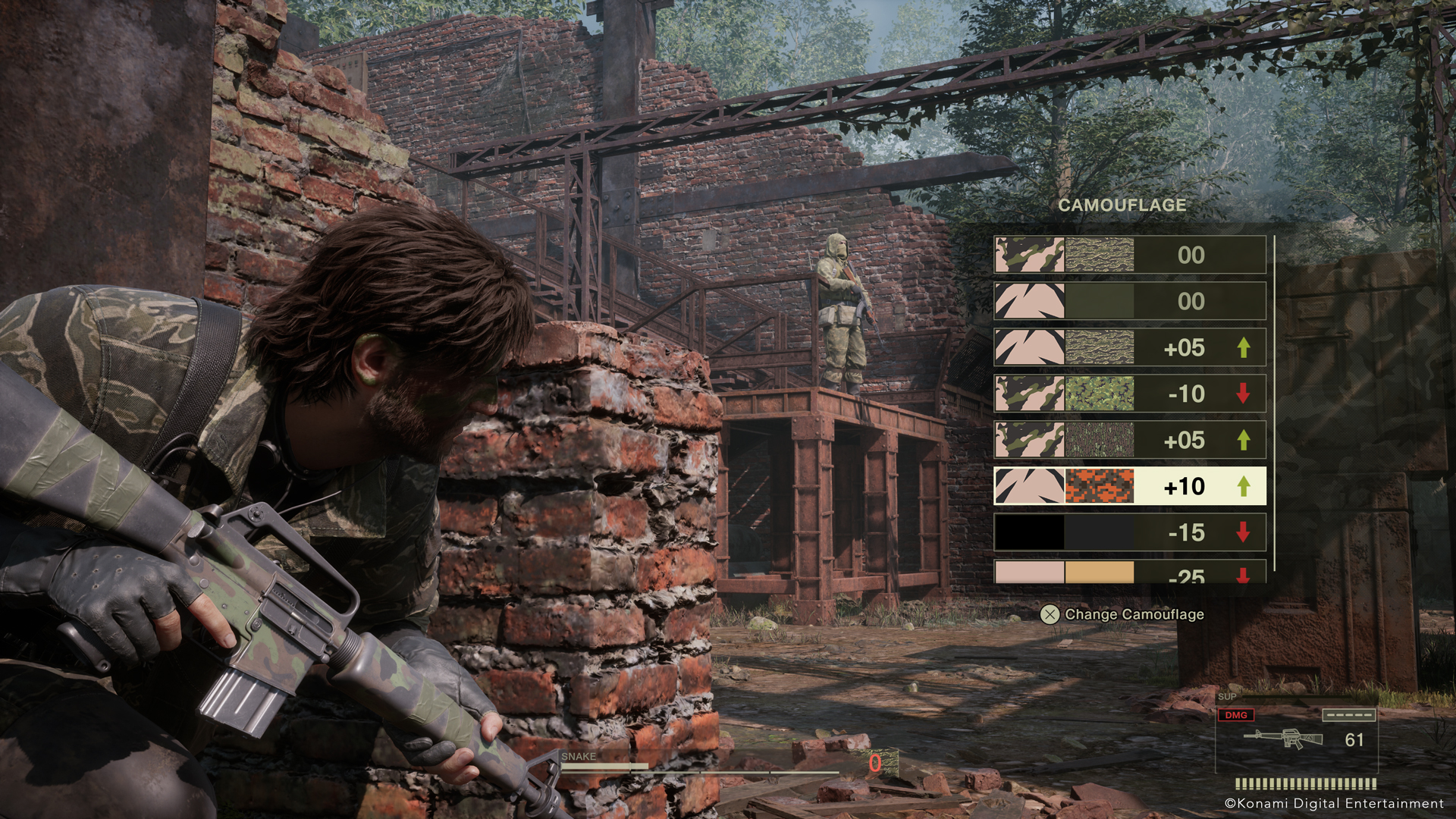
Yet somewhat ironically, the lavish visuals also serve to highlight some of Snake Easter's creaky ps2 origins. While loading between stealthy vignettes is predictably snappy on PS5, each new tiny playable zone breaks the shiny 4K illusion, sending you back to the limitations of 2003. Sprinting between tree cover to tree cover before suddenly hitting the loading screen shatters the feeling that you're off exploring a vast jungle. As you crawl, roll, and dive across each area with modern eyes , it feels closer to exploring a squared off section of inner city park than a dense tropical wilderness.
Thankfully, though, the characters move with modern grace. It's why for Metal Gear Solid Delta, the team decided to completely overhaul the original's stiff animations and unwieldy control scheme. "Initially, we thought that we would just be improving the graphics,"Okamura explains, "But when you see the game with very good graphics, a lot of the clunky parts starts to poke their head out… once we saw the original character animations with very realistic graphics, they looked a little bit old, so we knew we had to tweak the original code."
Luckily, the team had some legendary heroes of their own to help guide these changes: "Having some of the staff who actually worked on the original game really helped," says Okamura, "They could shine light on what we could change and how we could change it, so it was great to have them around to guide us in that way."
You've created a Time Paradox!
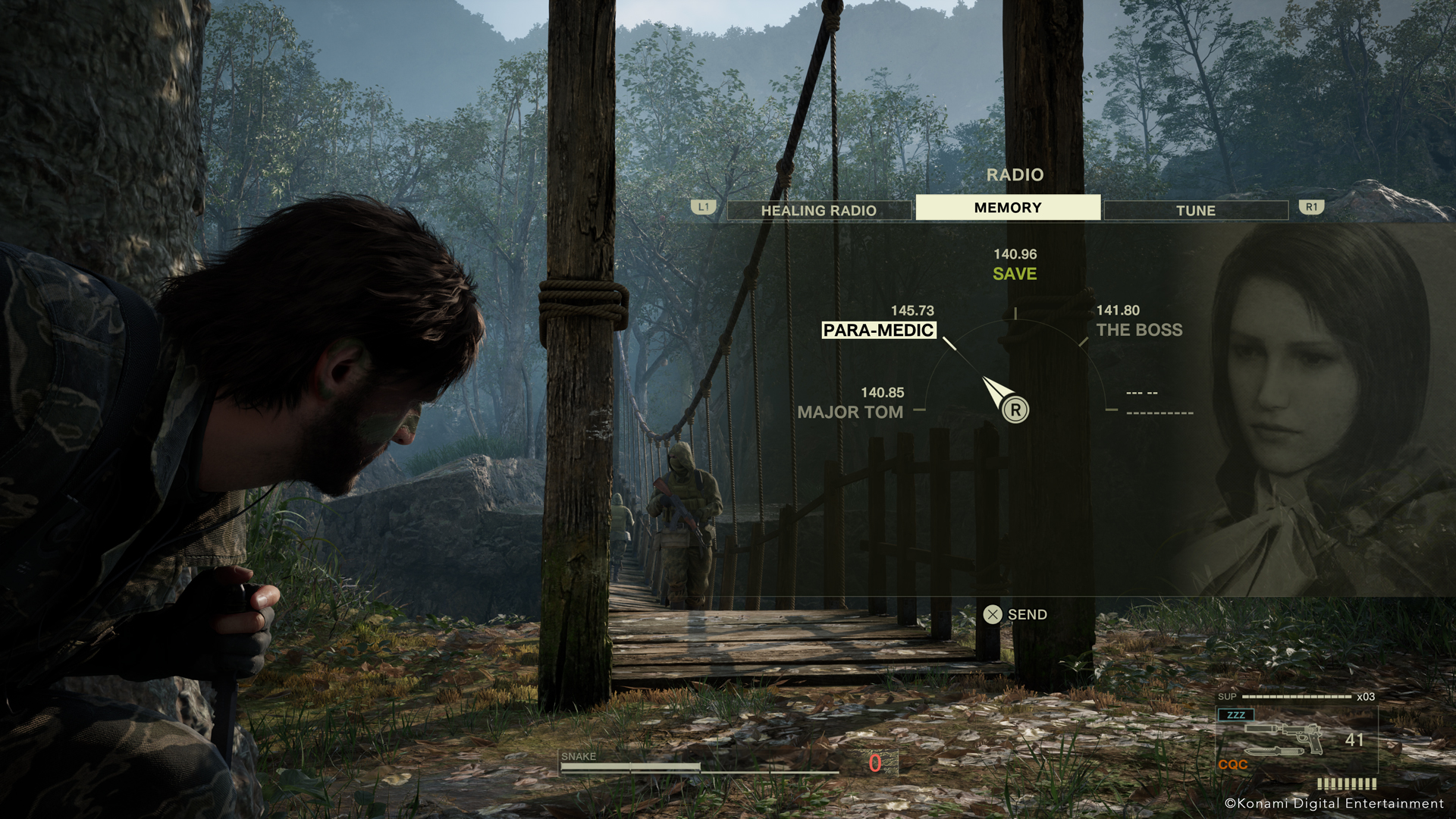
While Capcom's excellent Resident Evil Remakes opted for a remix approach, cutting, changing, and adding where they felt necessary, Konami have instead gone for a purist approach to Snake Eater's story and core gameplay mechanics. Yet mercifully, Delta brings that classic gameplay inline with 2024 standards. Playing with the modernized controls option, Snake Eater's infamously clunky combat now handles much like in The Phantom Pain. You can shoot while crawling backwards. Close Quarters Combat (CQC) no longer feels as awkward arcane as it once did, allowing for smoother takedowns that make high level stealth play infinitely more attainable.
As anyone who's suffered hearing Wolverine's voice actor return for X-Men '97 will attest, getting an aging cast to return decades later isn't always the wisest call. Thankfully then, the performances from the PS2 original still hold up brilliantly. From David Hayter's inimitable growl to Josh Keaton's impudent whinging as baby Ocelot, the charm of the original has impressively survived the transit across three generations of console hardware. "What we want to offer is the same exact feeling as those who played the original Snake Eater for the first time, that thrilling, baffling experience," explains Okamura.
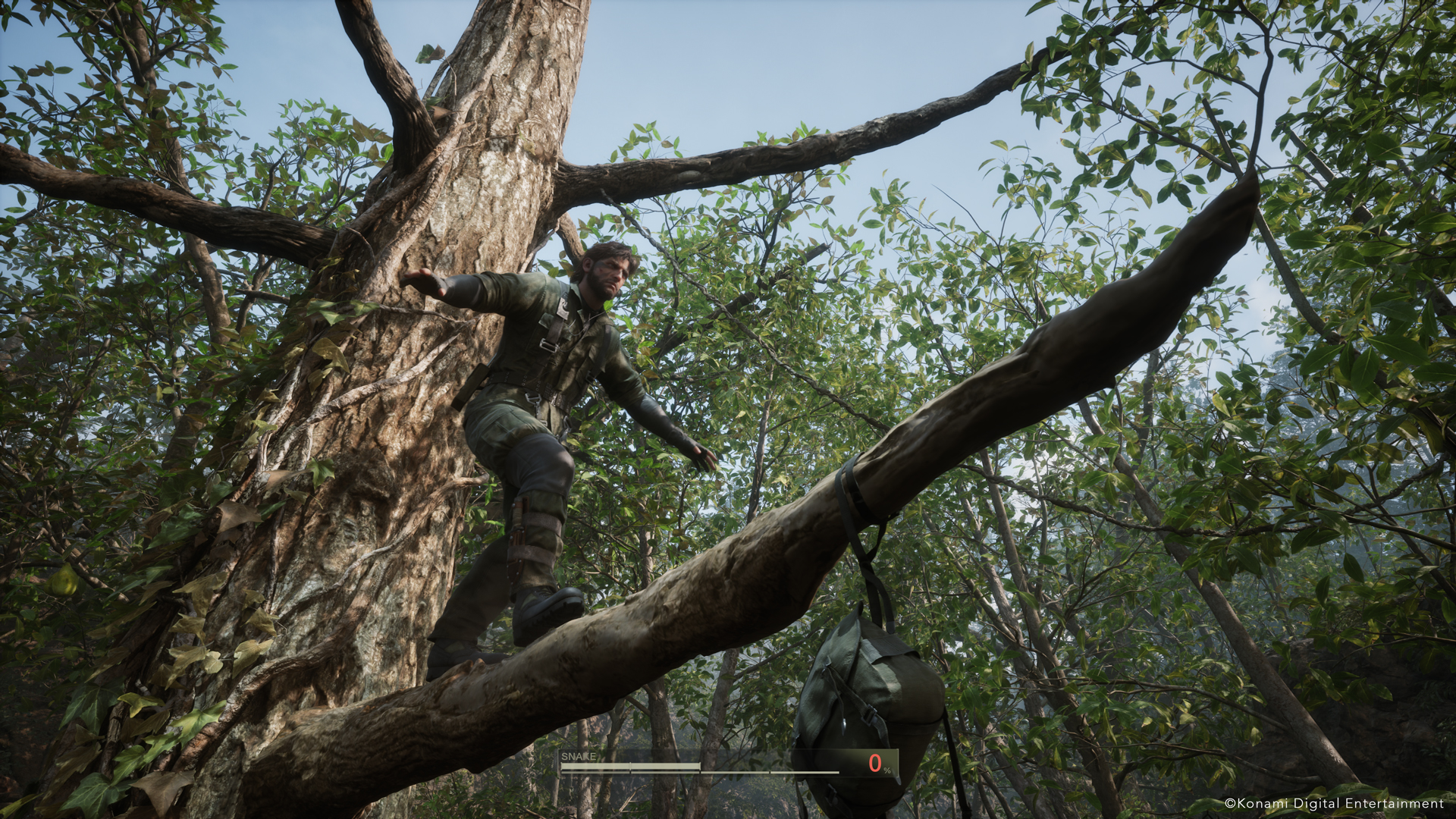
The more Otacon-minded of you out there will be pleased to hear that Konami wastes no time in laying its graphical cards on the proverbial table. When you boot Metal Gear Solid Delta, you are given the option for a 30FPS visual mode – a dynamic resolution scaling between highs of 4K and lows of 1440p – or a 60fps mode, scaling between 4K and 1080p. If however, you opt for fidelity, the 30fps mode seems to be pretty solid, despite halving the frame rate of the PS2 original. After the less than competent ports of the recent Master Collection, here's hoping both modes deliver.
21 years later, there's still nothing out there that feels quite like Metal Gear Solid 3: Snake Eater. From its blend of Cold War history to James Bond cheese and anime excess, it's a beautifully absurd creation, and one that absolutely deserves to be experienced again. While its relentless barrage of hands off exposition may be a tough pill for newbies to swallow, thanks to the stunning new coat of paint and modernized take on CQC, Metal Gear Solid: Delta is shaping up to be the definitive way to experience Big Boss' origins.
Metal Gear Solid Delta: Snake Eater is set to launch on PC, PS5, and Xbox Series X in 2024. While you wait, go back and play one of the best Metal Gear games.







